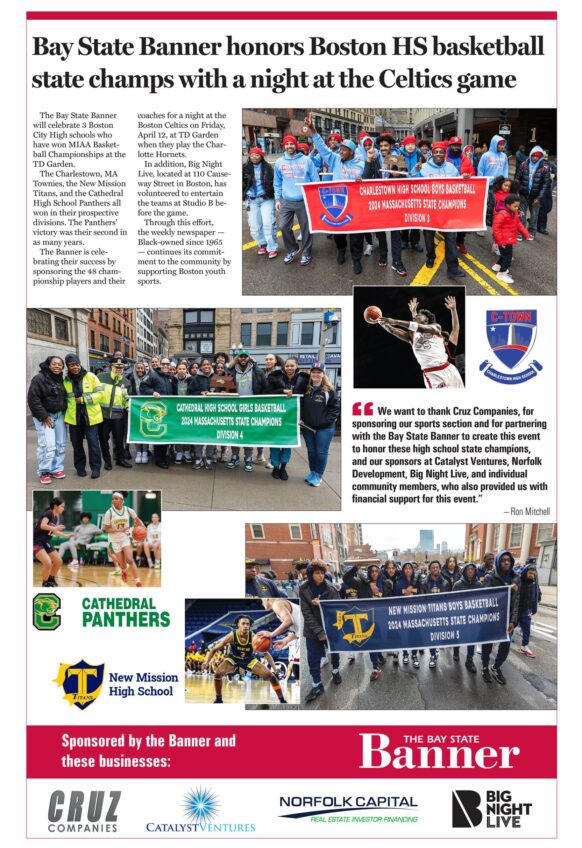As police mistreatment of people of color has risen to a national dialogue over the past year, one local court case reveals an apparently little-used approach to police reform.
In an ongoing federal lawsuit filed in 2012 against Brockton and its police department, Ken Williams, a former Brockton homicide detective, alleges the department has a widespread pattern of racially discriminatory police conduct. His lawsuit departs from the typical legal approach to discrimination by making a unique legal argument: that the city has defrauded the federal government by accepting federal funds for its police department while not adhering to anti-discrimination requirements.
“What Ken is pointing out here is there may be a way to initiate police reform in addition to civil rights litigation,” says Peggy Schoen, media relations director of the Simmer Law Group, where Williams’s lawyer Thomas Poulin works.
Williams filed his case in November 2012 in the U.S. District Court for the District of Massachusetts. It is being overseen by Judge Indira Talwani.
Williams alleges systemic patterns of racial discrimination within the Brockton Police Department, illustrated by a number of examples, including an incident in which he acted as a whistleblower and for which he has separate litigation pending.
William’s initial civil action was filed previously against the Brockton police department in March 2012. In that case, Williams claims he faced department retaliation that ended his police career following his role as a whistleblower in a case of police misconduct that reverberated across Brockton.
While both cases are ongoing and focus on related themes, it is Williams’ second case that has the potential for more wide-ranging impact on an issue that has grabbed headlines nationwide. It utilizes a legal argument that, as far as his lawyers are aware, is a first in cases of alleged police misconduct and department-wide racial discrimination.
A charge of fraud
That argument centers on allegations of fraud under the federal False Claims Act. The case argues that because the city of Brockton received federal funding through the Community Oriented Policing Services (COPS) program – a flow of federal funding to municipal police departments that many cities use nationwide – but did not adhere to federal anti-discrimination requirements, the city essentially committed fraud against the federal government.
Williams’s lawyers point out that FCA cases have been used before in suits against the pharmaceutical industry to encourage whistleblowers having insider knowledge of wrongdoing to come forward. The resulting loss of federal funding then triggers broad-sweeping change in the way that other punishments do not, they argue. (The Banner reached out to Williams, who deferred to his lawyers for media comment.)
“In the 1990s, it became apparent that drug companies were ignoring the FDA’s guidelines for marketing prescription drugs by actively promoting off-label uses,” reads a statement from the Simmer Law Group.
“Neither regulatory enforcement by the FDA not civil actions brought by patients who suffered harm were proving effective as deterrents.” By contrast, the statement says, the heavy fines and threat of exclusion from Medicare/Medicaid programs resulting from Federal Claims Act cases made the industry “get the message.”
Schoen said the same logic applies to police departments.
“If you’re not willing to use a stick for [police] departments with some terrible practices …the only other recourse is to wait until one or more people die,” she told the Banner by phone. “And that’s exactly what we’ve been seeing.”
The more common method used by the Department of Justice to address local police misconduct is the Violent Crime Control and Law Enforcement Act, passed by Congress in 1994 in the wake of the Rodney King beating. This was the tactic used in the recent federal investigation of the Cleveland police department, which precipitated changes enshrined in a consent decree between that city and the feds announced May 26.
Poulin added that they view the case as potentially a trailblazer for other cases of alleged police abuse and racial discrimination that have been a major topic of national conversation over the past year.
“It can raise awareness with other officers around the country,” he said. “This may be an option if they find themselves in a situation [as a whistleblower].”
Poulin and Schoen said that to their knowledge, the Federal False Claims Act has not been used elsewhere to address problems of racial discrimination in police departments.
Poulin says that while the DOJ has not formally intervened in Williams’s case, the DOJ continues to investigate his complaint.
When reached for comment, the spokesperson for the U.S. Attorney’s Office in Boston, Christina Dilorio-Sterling, issued a statement via email that did not delve into specifics.
“The U.S. has investigated the allegations in the complaint and has decided not to intervene at this time,” she said.
Williams also has been pushing the idea of FCA with policymakers, including staff members for the Congressional Black Caucus with whom he met in February.
Court documents from Williams’s FCA case claim that “the City and the BPD have engaged in, and continue to engaged in, a pattern and practice of unlawful discriminatory police conduct directed at African-Americans, Hispanics, Cape Verdeans, and other minorities in the City of Brockton.”
The lawsuit claims that minorities are “frequently stopped, detained, searched, falsely arrested, assaulted, subjected to excessive force and disparate treatment and denied due process and other constitutional protections.”
It refers to a number of specific incidents of alleged police misconduct, including the catalyzing incident that first got Williams involved as a whistleblower, as well “non-public” cases. In this second type of case, the lawsuit argues, “the City and the BPD…are able to ‘close’ the citizen complaint, and avoid reporting these types of civil rights violations.”
On February 3, 2015, the city of Brockton and the Brockton Police Department filed a motion for Williams’ case to be dismissed. The judge’s decision on that motion has not yet been issued.
Whistleblower blowback
Williams’s more broad-sweeping suit stems from an earlier civil action he brought against the city and the police department. In that one, he claims he was punished professionally for acting as a whistleblower on a matter of police misconduct, an episode that generated lots of local attention.
As reported previously by the Brockton Enterprise and other media outlets, the initial incident occurred in November 2007, when Brockton resident Jose Semedo, a native of Cape Verde, was falsely arrested for larceny at his place of business by four white officers. One officer, Sgt. Lon Elliot, allegedly made racially derogatory remarks to Semedo and acted out ape-like gestures in his face.
Williams became involved when Semedo approached him after the incident and asked for his help. Williams advised Semedo to file a complaint with the on-duty shift commander and also later testified against Elliot in a hearing on the arrest.
Elliot was fired after a February 2009 hearing on the incident. Semedo sued the city and settled in 2013 for $35,000.
In March 2012, Williams sued the city and several other city defendants, alleging that he was professionally punished for his involvement in the Semedo case. He claims that Elliot, who was his shift supervisor at the time, refused to file a work-related injury report to the city’s worker’s compensation department following an injury that Williams received on the job. As a result, the city refused to compensate Williams when he missed a month of work due to his injury. Williams also alleges that the city refused to grant him permanent disability benefits for a longstanding, recurring work-related injury of heart disease.
While this court case was originally scheduled for a December trial date, the city filed a motion to reconsider the summary judgment shortly before trial. At the new hearing on June 15, the judge will decide again whether the elements of the case pass summary judgment.
The Banner reached out to the Brockton Police Department for comment for this story, but spokesperson Lt. Kenneth LeGrice said he could not comment on ongoing litigation.
Stephen Pfaff, the lawyer for the City of Brockton and the Brockton Police Department in both Williams cases, spoke with the Banner by phone.
“Our motion to dismiss speaks for itself,” he said, referring to the motion the defendant filed in the FCA lawsuit in February 2015.
“We deny his allegations, and we don’t believe he can prove them.”
Broader issues at stake
The Banner spoke with two local community leaders about the themes invoked by the two cases.
At-large city councilor Moises Rodrigues could not comment on either case because elected officials cannot comment on ongoing litigation, but he did talk about issues pertaining to race and policing in Brockton.
“I’m concerned about the fact that we don’t have police officers in the community that resemble the community they serve,” he said, adding that there are no people of color who are supervisors in the police department.
He added, however, that there were some signs of change.
“We’ve got nine young people in the academy – and seven are minorities, that’s a major step,” he said. He described the change as “ongoing, not overnight.”
Ossie Jordan, a longtime resident and community activist, said he could not comment specifically on the Williams lawsuits because he did not know enough details about the cases.
He added, however, that while he was aware of “issues in the past” with police, he hadn’t heard of such incidents recently and was under the impression that problems stemmed from “a few individuals not following the laws even though they are police officers.”
Nevertheless, he contrasted what he saw as better progress on such issues in Boston compared to suburb communities.
“Boston is its own island,” he said. “When you get out to these other cities and towns, it’s a whole different ball game. … We’ve got some cities, where, you don’t want to drive though because you’ll get stopped, depending on what car you’re driving and your color.”
He said he was particularly impressed by the recent decision by the Boston Police Department to release publicly the video of the fatal police shooting of Angelo West in Roxbury shortly after it happened. (The police shooting of Usamaah Rahim, along with the grainy video that recently was released publicly, happened after the conversation with Jordan.)
“People took care of business,” he said. “The film was on the TV that night. There’s been positive actions.”






